Lego admits 'mistake' in Ai Weiwei row
- Published
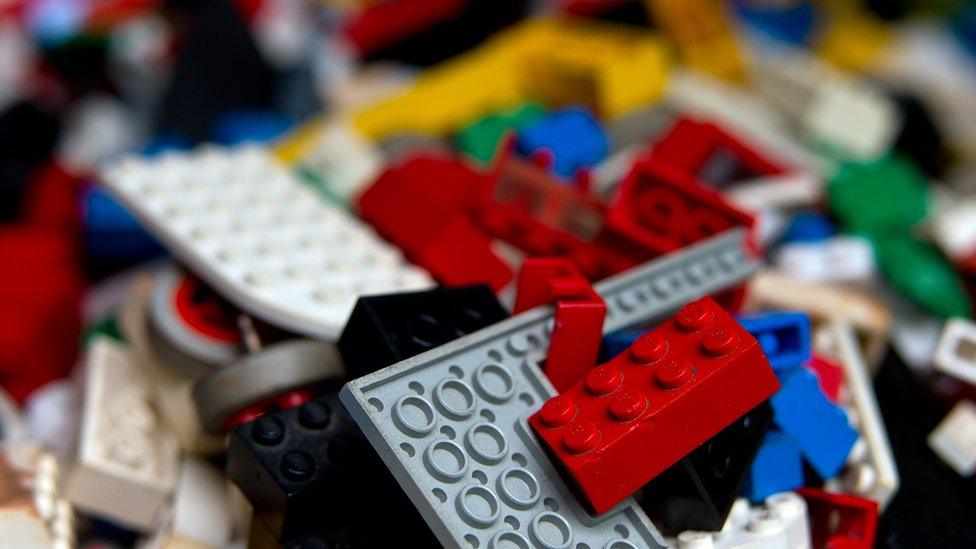
Lego said it was "a typical example of what can go wrong in a big company"
Lego's decision to reject Chinese artist Ai Weiwei's request for a bulk order of its bricks last year was a "mistake", the toy firm has admitted.
Vice-Chairman Kirk Kristiansen told The Wall Street Journal, external an employee had misinterpreted the company's policy on political neutrality.
In October, Ai said his request was declined because Lego considered his planned exhibition to be too political.
The artist is known for criticism of the Chinese government.
"It was an internal mistake," Mr Kirk Kristiansen said.
He said the decision had been made "very low in the organisation by our consumer service department", and that Lego's board had not been involved at the time.
Mr Kirk Kristiansen's son and successor Thomas added: "It is a typical example of what can go wrong in a big company."
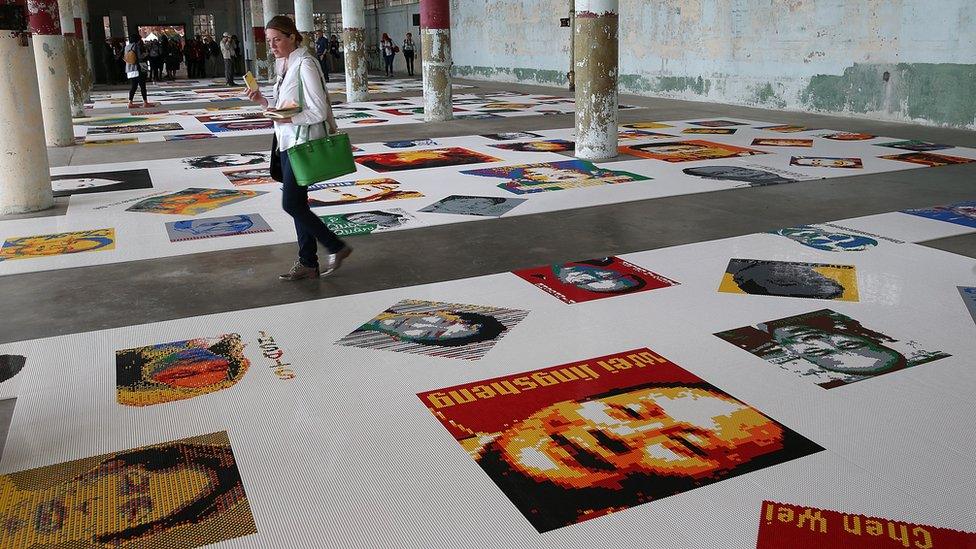
Ai created Lego portraits of notable dissidents in 2014 at San Francisco's infamous Alcatraz prison
Lego's refusal to provide bricks for Ai's artwork on political dissidents prompted people around the world to donate bricks at "Lego collection points" set up in different cities.
The artist ended up making a new series of artworks based on the incident as a commentary on freedom of speech and political art.
In January, Lego decided to stop asking bulk customers what they wanted to do with the bricks.
It said such customers should instead make clear that the company does not endorse works shown in public.
Ai later told the BBC that Lego's U-turn was a "victory for freedom of speech".
The artist also appeared to react to Lego's decision by posting a picture on Instagram, external of a young boy sticking bricks onto his face, accompanied by a grinning emoji caption.
Chinese artist Ai Weiwei described the U-turn as "a victory for freedom of speech"
- Published13 January 2016
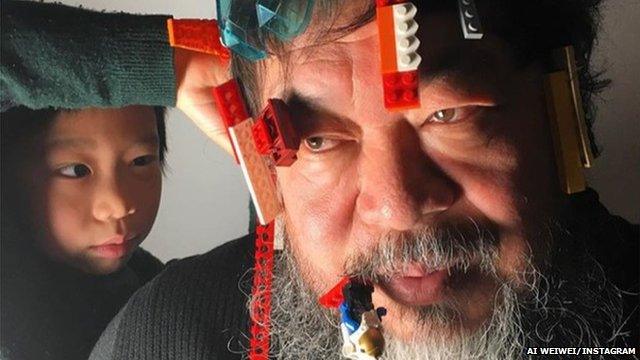
- Published13 January 2016

- Published29 October 2015
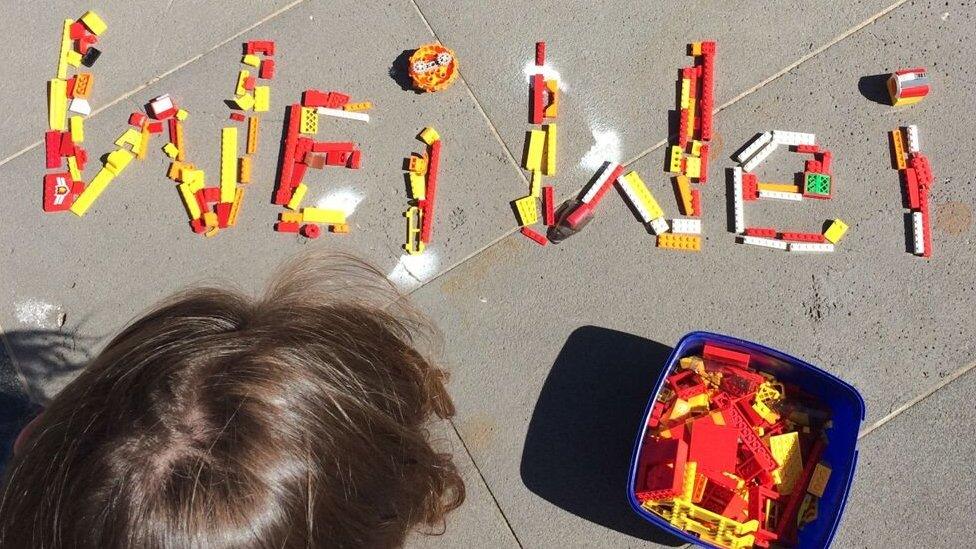
- Published26 October 2015
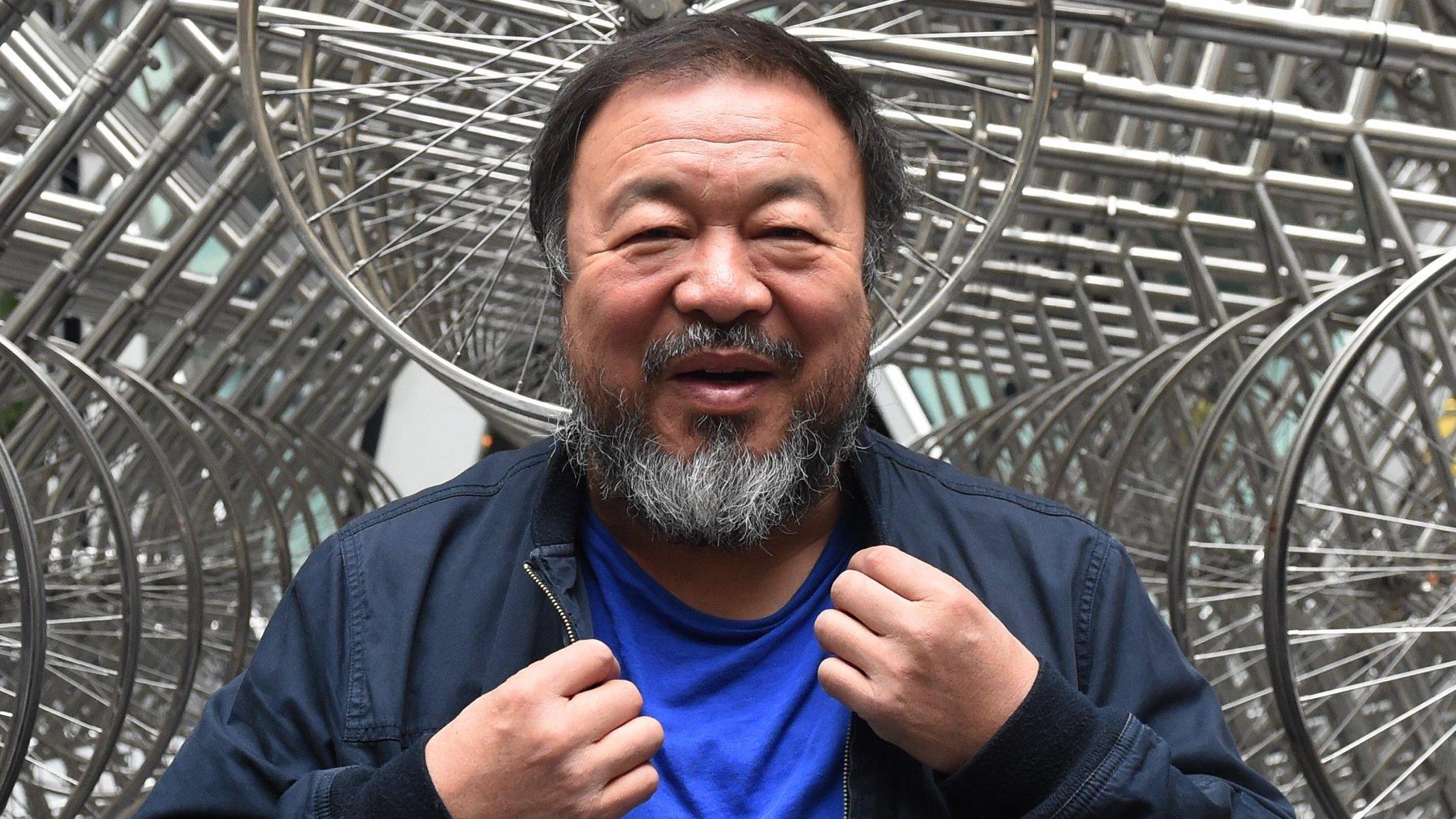
- Published25 October 2015
